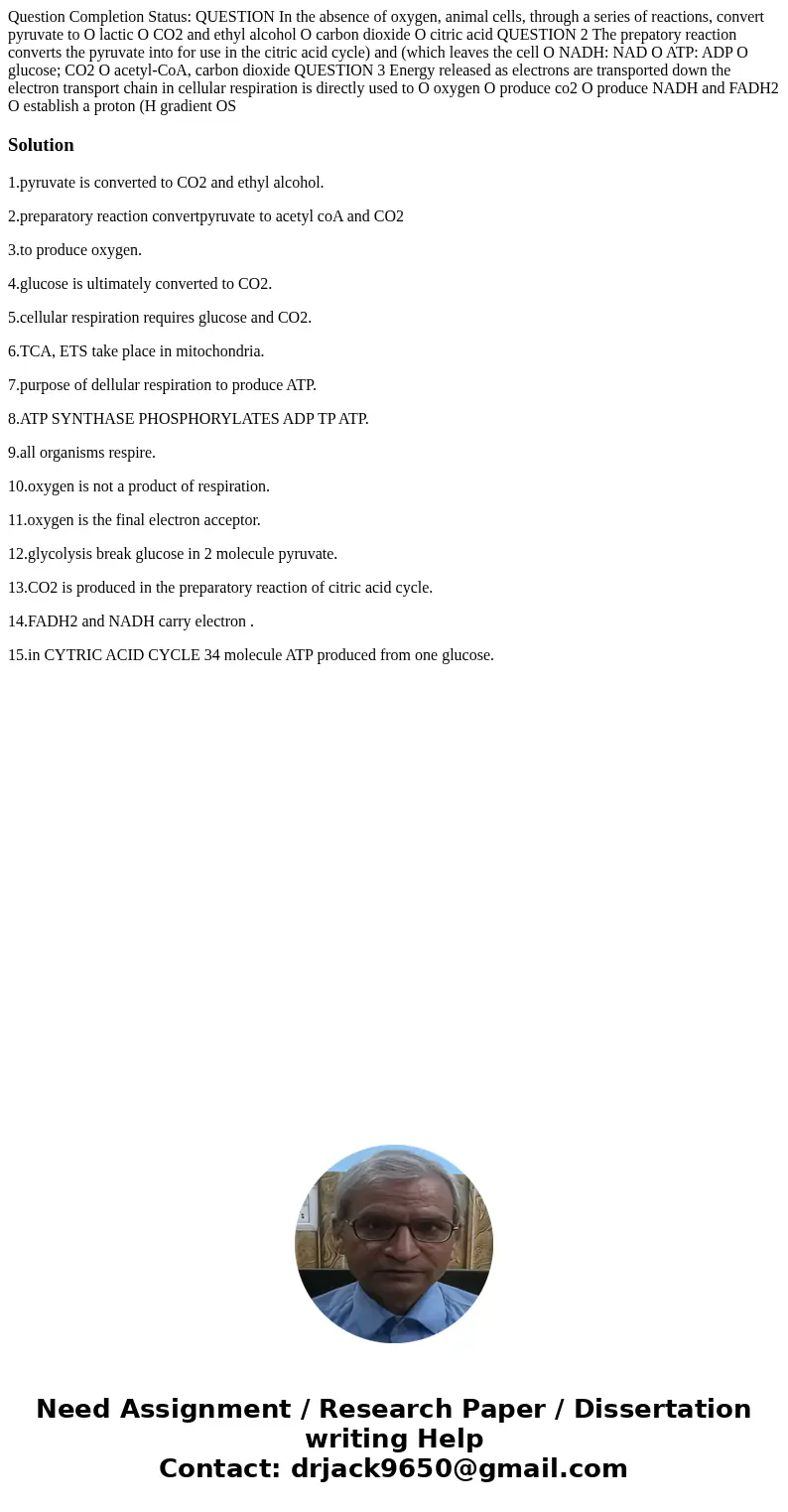Question Completion Status QUESTION In the absence of oxygen
Question Completion Status: QUESTION In the absence of oxygen, animal cells, through a series of reactions, convert pyruvate to O lactic O CO2 and ethyl alcohol O carbon dioxide O citric acid QUESTION 2 The prepatory reaction converts the pyruvate into for use in the citric acid cycle) and (which leaves the cell O NADH: NAD O ATP: ADP O glucose; CO2 O acetyl-CoA, carbon dioxide QUESTION 3 Energy released as electrons are transported down the electron transport chain in cellular respiration is directly used to O oxygen O produce co2 O produce NADH and FADH2 O establish a proton (H gradient OS 
Solution
1.pyruvate is converted to CO2 and ethyl alcohol.
2.preparatory reaction convertpyruvate to acetyl coA and CO2
3.to produce oxygen.
4.glucose is ultimately converted to CO2.
5.cellular respiration requires glucose and CO2.
6.TCA, ETS take place in mitochondria.
7.purpose of dellular respiration to produce ATP.
8.ATP SYNTHASE PHOSPHORYLATES ADP TP ATP.
9.all organisms respire.
10.oxygen is not a product of respiration.
11.oxygen is the final electron acceptor.
12.glycolysis break glucose in 2 molecule pyruvate.
13.CO2 is produced in the preparatory reaction of citric acid cycle.
14.FADH2 and NADH carry electron .
15.in CYTRIC ACID CYCLE 34 molecule ATP produced from one glucose.

 Homework Sourse
Homework Sourse